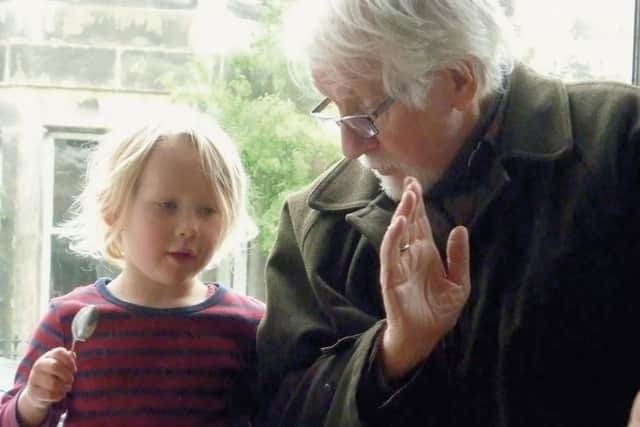Folksongs Sung in Ulster: groundbreaking book republished for new generation of singers
Oh I came down from Munster and I went into Leinster,
And I met with a dame and they called her a spinster.
I got up in the corner and I creepied up fornenst her.


On Patrick’s Day in the mornin’ …
How many folks will be singing this ribald ditty on the 17th remains to be seen, but as St Patrick’s Day looms, it seems appropriate to quote it, as sung by Arthur Whiteside of Canary, County Armagh, a strong singer and tradition carrier (not to mention master of his local Orange Lodge). It’s one of 52 songs collected tirelessly for the groundbreaking book Folksongs Sung in Ulster, by the late Robin Morton, best known in Scotland as a founder member of the Boys of the Lough, long-time proprietor of Temple Records and manager of the Battlefield Band.
Originally brought out in 1970, the year he moved to Scotland, Folksongs Sung in Ulster was hailed by the author and raconteur Benedict Kiely as “the best ballad book yet to be published”. Morton died suddenly in October 2021, but his book, which he had almost finished re-editing, has now been republished by Kinmor Music – with, perhaps most importantly, 22 of its 52 songs voiced by their source singers on an accompanying CD.
Advertisement
Hide AdAdvertisement
Hide AdMorton’s wife, the celebrated glass engraver and harpist Alison Kinnaird, carried out the remaining editing with help from Temple’s Denise Lindsay, designer John Slavin and Temple Records engineer Ewan MacGregor, who assembled the tracks chosen by Robin for the CD.
Morton, in his original foreword, stressed the importance of preserving the “oral dynamic” in passing on songs and pondered whether, “out of this essentially oral environment they might die due to lack of nourishment.”. However, he reckoned “the risk of committing these songs to print seems worth taking.”
He also felt he was redressing a balance; that the nine counties of Ulster had tended to be neglected by collectors seeking “Irish” music. His notes to each song reflect his approach – informed, witty and respectful of their communities on either side of the sectarian divide, displaying a palpable affection for both the songs and their carriers. As the CD demonstrates, some were clearly recorded in pubs, with the clink of cordiality and yells of “Order!” accompanying the singer.
These are often rough-hewn, big-hearted voices, telling songs ranging from the tragic Blantyre Explosion, brought from Scotland by its singer, John Maguire, to Armagh singer Michael Higginbottom’s droll epic The Irish Jubilee (recorded by Morton and Cathal McConnell on their 1976 album of the same name).
The book was launched at a celebratory fling in Edinburgh’s St Cecilia’s Hall in December. The following month, a similarly enthusiastic Celtic Connections concert featuring luminaries of the Gaelic song world launched another new book, Gun Sireadh, Gun Iarraidh – The Tolmie Collection.
Born in Skye in 1840, folklorist Frances Tolmie is described by the book’s Stornoway publishers, Acair, as “one of the great unsung heroines of Scottish Gaelic song”, whose seminal collection has influenced singers from the early 20th century on. A core selection was published in 1911 by the English Folk-Song Society, but mostly in translated form: now, under the title Gun Sireadh, Gun Iarraidh – “Without Seeking, Without Asking”, the expanded collection has been edited by Kenna Campbell, a renowned Gaelic singer and teacher, and one of her former students, Ainsley Hamill, now an established singer and songwriter in Gaelic and English.
The songs, gathered over a lifetime by Tolmie, range from children’s rhymes and mouth music to bardic classics drawing on Celtic and Arthurian legend.
Advertisement
Hide AdAdvertisement
Hide AdAcair’s manager Angus Morrison is enthusiastic about the new, expanded edition: “Our hope is that the book will be well-thumbed for a new generation of musicians and lovers of Gaelic song, returning Frances Tolmie's work to its rightful prominence. These songs have been sung for generations and it is important that they continue to be sung.”